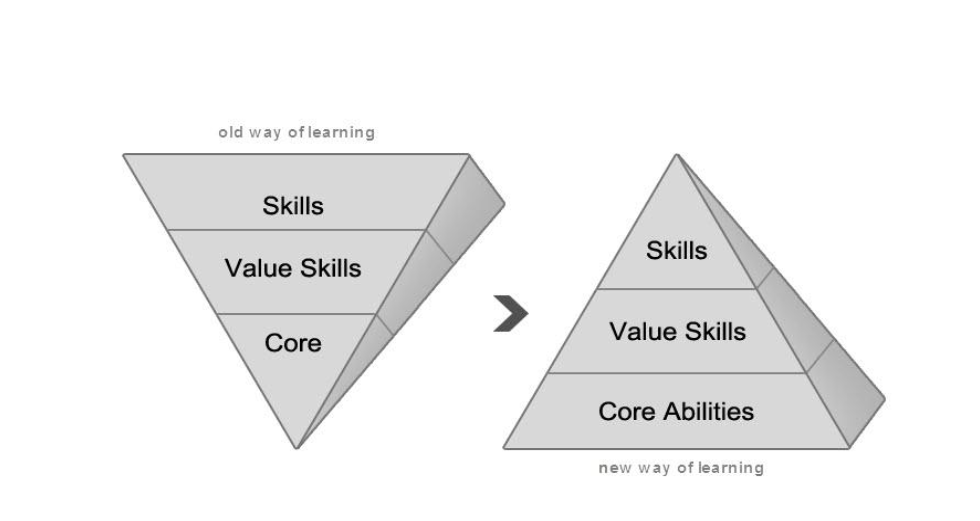As mentioned in my last post, The Regis Company has organized and mapped how-to-think patterns to one or more thinking abilities that we refer to as core abilities: critical, creative, and systems thinking. These core abilities are central to the patterns of thought of how-to-think workers. Now, let’s dive deeper into core abilities and how we address and improve them through our leadership development training programs.
One way to think about core abilities is in terms of muscle groups. Developing core muscles improves overall health, balance, stability, strength, and agility, and has been shown to be a primary factor in the ability to participate effectively in most physical activities. In fact, research shows that developing core strength minimizes injuries, results in fewer illnesses, and allows for higher performance in unexpected situations.
The comparison transfers over to developing core abilities, which are imperative for learning and adapting to new situations. When people improve their core thinking abilities, they improve their effectiveness at making decisions, solving problems, and collaborating, which ultimately defines their value potential. We call these three skills the Value Skills.
The graphic below illustrates the difference between typical what-to-think training solutions and the how-to-think solutions we believe are necessary to improve an organization’s or an individual’s value. The “old way of learning” approach is focused mostly on skill training, less on the Value Skills, and only a small amount on the core abilities. With the increased complexity and relentless noise, employees must have the ability to adapt and the capacity to add value. This requires a “new way of learning” in which the focus is predominantly on the core abilities and Value Skills.

Soft skills, such as planning, delegating, negotiating, motivating others, resolving conflict, implementing change, driving results, and creating engagement, though typically taught in a workshop or reinforced via e-learning, truly find their roots in the Value Skills and Core Abilities.
I experienced the negative effects of the old way of learning when I first became a manager. I went to a leadership and management training class and learned a new process and tool for motivating others. I left excited, and I was determined to be a great coach. I focused on coaching everyone and inspiring them to do great things—until my boss called, disappointed that I’d missed the last few deliverable dates.
I then thought, “Coaching is a nice idea, but there’s no time for it.” So, I took matters into my own hands by doing the work myself. Because I did not understand the underlying relationships between coaching, directing, motivation, and work output, I did not internalize that coaching takes time before it produces any results.
So, I implemented a quick fix that resulted in our hitting our next deliverable dates, but I did not build any capacity. As such, I was able to sustain that level of effort for only a few months. I felt deeply frustrated because I had just gone through corporate leadership training but still performed ineffectively. I have seen similar frustration in the new and seasoned managers we have worked with over the years.
The problem is so often the same: leadership development training programs consistently fail to deliver on their promises because they focus on visible factors and address them by teaching concepts, tips, introspection, and what great leaders do.
But leadership is dynamic. Organizations are dynamic. People are dynamic.
As such, each needs to be understood from a systems perspective within the context of the organization. As Henry Mintzberg, a management and business strategy expert with more than 150 articles and 15 books to his name, explained, “Sustainable success and successful leadership of an enterprise can be explained by factors other than visible results and the behavior of individual persons.” He pointed additionally to the necessity of understanding the systems levels underneath the surface, examining what is “below the waterline.” When leadership development training programs teach employees how to observe and identify these dynamics at work, they equip employees at all levels to increase their value and better apply other learned skills.
Michael Vaughan is the CEO of The Regis Company, a global provider of business simulations and experiential learning programs. Michael is the author of the books The Thinking Effect: Rethinking Thinking to Create Great Leaders and the New Value Worker and The End of Training: How Business Simulations Are Reshaping Business.